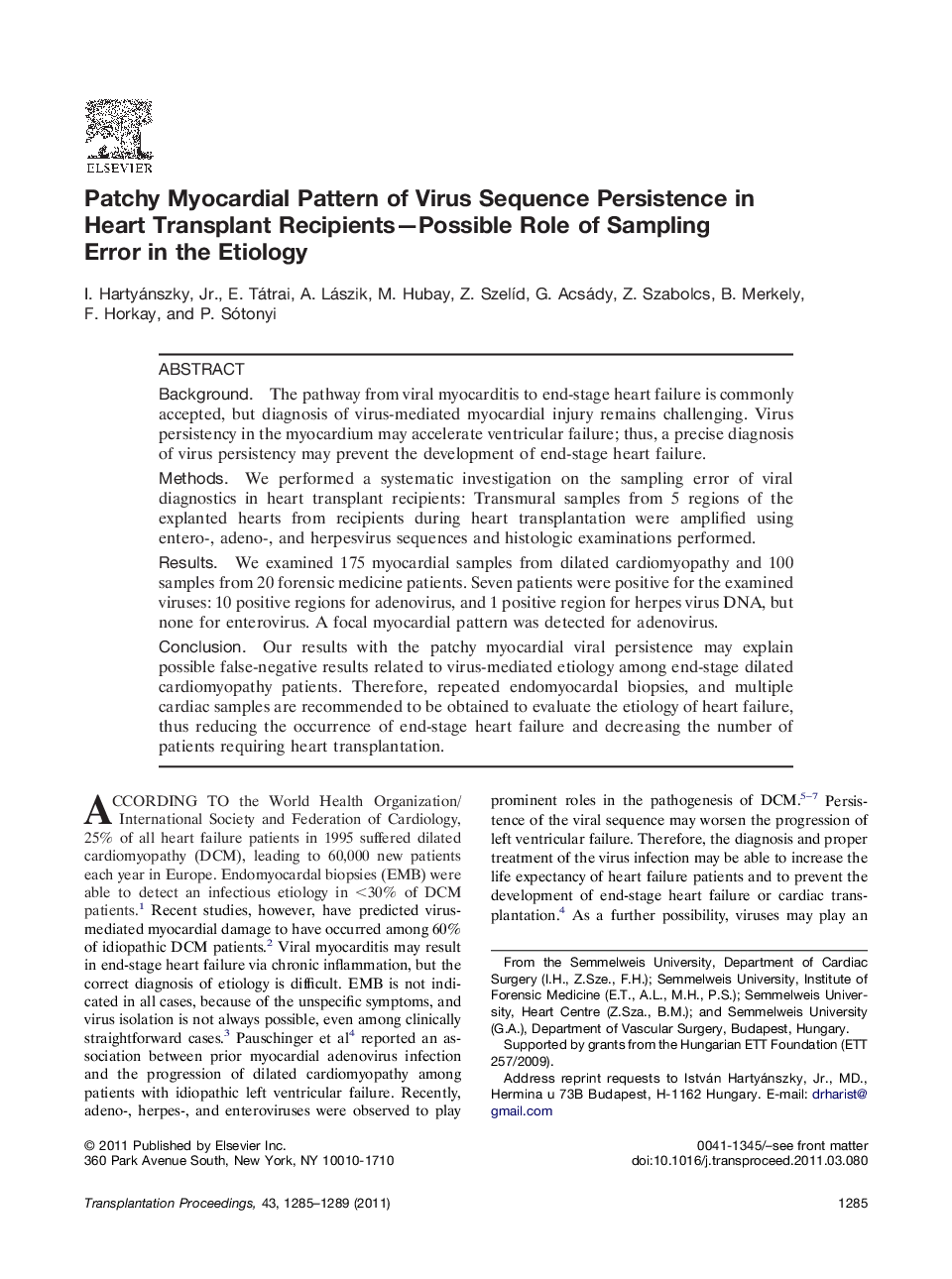| Article ID | Journal | Published Year | Pages | File Type |
|---|---|---|---|---|
| 6249655 | Transplantation Proceedings | 2011 | 5 Pages |
BackgroundThe pathway from viral myocarditis to end-stage heart failure is commonly accepted, but diagnosis of virus-mediated myocardial injury remains challenging. Virus persistency in the myocardium may accelerate ventricular failure; thus, a precise diagnosis of virus persistency may prevent the development of end-stage heart failure.MethodsWe performed a systematic investigation on the sampling error of viral diagnostics in heart transplant recipients: Transmural samples from 5 regions of the explanted hearts from recipients during heart transplantation were amplified using entero-, adeno-, and herpesvirus sequences and histologic examinations performed.ResultsWe examined 175 myocardial samples from dilated cardiomyopathy and 100 samples from 20 forensic medicine patients. Seven patients were positive for the examined viruses: 10 positive regions for adenovirus, and 1 positive region for herpes virus DNA, but none for enterovirus. A focal myocardial pattern was detected for adenovirus.ConclusionOur results with the patchy myocardial viral persistence may explain possible false-negative results related to virus-mediated etiology among end-stage dilated cardiomyopathy patients. Therefore, repeated endomyocardal biopsies, and multiple cardiac samples are recommended to be obtained to evaluate the etiology of heart failure, thus reducing the occurrence of end-stage heart failure and decreasing the number of patients requiring heart transplantation.
